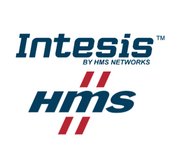Modbus is a data communications protocol originally published by Modicon (now Schneider Electric) in 1979 for use with its programmable logic controllers (PLCs). Modbus has become a de facto standard communication protocol and is now a commonly available means of connecting industrial electronic devices.
Modbus is popular in industrial environments because it is openly published and royalty-free. It was developed for industrial applications, is relatively easy to deploy and maintain compared to other standards, and places few restrictions on the format of the data to be transmitted.
The Modbus protocol uses character serial communication lines, Ethernet, or the Internet protocol suite as a transport layer. Modbus supports communication to and from multiple devices connected to the same cable or Ethernet network. For example, there can be a device that measures temperature and another device to measure humidity connected to the same cable, both communicating measurements to the same computer, via Modbus.
Modbus is often used to connect a plant/system supervisory computer with a remote terminal unit (RTU) in supervisory control and data acquisition (SCADA) systems. Many of the data types are named from industrial control of factory devices, such as ladder logic because of its use in driving relays: a single-bit physical output is called a coil, and a single-bit physical input is called a discrete input or a contact.
The development and update of Modbus protocols have been managed by the Modbus Organization[2] since April 2004, when Schneider Electric transferred rights to that organization.[3] The Modbus Organization is an association of users and suppliers of Modbus-compliant devices that advocates for the continued use of the technology.[4] Modbus Organization, Inc. is a trade association for the promotion and development of the Modbus protocol.
Modbus is often used to connect a plant/system supervisory computer with a remote terminal unit (RTU) in supervisory control and data acquisition (SCADA) systems. Many of the data types are named from industrial control of factory devices, such as ladder logic because of its use in driving relays: a single-bit physical output is called a coil, and a single-bit physical input is called a discrete input or a contact.
The development and update of Modbus protocols have been managed by the Modbus Organization[2] since April 2004, when Schneider Electric transferred rights to that organization.[3] The Modbus Organization is an association of users and suppliers of Modbus-compliant devices that advocates for the continued use of the technology.[4] Modbus Organization, Inc. is a trade association for the promotion and development of the Modbus protocol.












